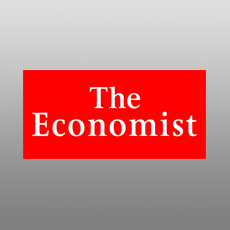Oxford, UK - the Centre for Vision in the Developing World (CVDW) and Dow Corning are one step closer to delivering their goal of providing vision correction and thereby improving education and quality of life for children in the developing world. As a result of the Child Vision initiative, CVDW has developed a new
prototype of self-adjustable glasses. The design and creation of the Child Vision prototype demonstrates significant progress toward the design, manufacture, and distribution of a child-specific version of self-adjustable glasses.
The Child Vision initiative, the result of a long-standing collaboration between Dow Corning and the CVDW, was formally launched in March 2011 to create an innovative new way to help provide vision correction to children in the developing world.
Recently published academic research demonstrates that most children and teenagers aged 12 to 18 are able to successfully achieve very good vision correction using self-adjustable glasses.
"Using our self-adjustable glasses, we want to help the more than 100 million young people in the developing world who need vision correction to see clearly," said Prof. Josh Silver, founder and director of the CVDW, and inventor of the world's first universal fluid-filled adjustable eyeglasses. "By combining the expertise of the CVDW and Dow Corning, we have been able to create a new design of self-adjustable glasses which are more suited to children aged 12-18."
With the help of local teachers and translators, a team led by the CVDW recently traveled to India to capture valuable insights from nearly 600 school-aged children. The results of the week-long assessment were used to refine the design features of the new prototype to maximize their appeal to this audience.
"The intention in designing the new glasses was to create a product that is simple and intuitive to use, fits teenagers well, and looks good, while at the same time being low cost to manufacture," said Maja Kecman, head of design at CVDW, who was responsible for the development of the new glasses.
The new glasses, filled with a Dow Corning optical silicone fluid, are designed specifically for the needs of myopic (nearsighted) teenagers. With a power range of 0 to -5 diopters, users are able to adjust the lens power by turning a dial on each arm. This adds or removes the fluid until the user can see most clearly. The adjusters are then detached, leaving a conventional-looking pair of glasses.
In addition to improved design, key elements of the Child Vision initiative are to ensure the design can be scaled up to mass-production levels and to establish programmes for distribution and instruction.
"Achieving the prototype is a great step forward but in order to be successful, we have to get them to the young people who need them," said James Stephenson, global healthcare market manager and leader of the Child Vision initiative at Dow Corning. "Our collaboration with the CVDW is about using vision correction to improve the quality of life of young people in the developing world. The CVDW now needs to scale up the glasses to sustainable production levels in order that children can ultimately benefit from this technology."
The next phase of the Child Vision initiative will see clinical trials of the prototype, leading to the production and distribution of the first 50,000 pairs of the new glasses planned to start in 2013. CVDW is in active discussions with several other potential funding and distribution partners. The aim is to distribute glasses through school-based programmes, in which students correct their vision under the supervision of their teacher. Initial deployments of the new glasses are planned for China, India and Indonesia, where the prevalence of refractive error is highest.
To learn more about Child Vision, visit www.child-vision.org.
Join the Child Vision discussion on Twitter by following #ChildViSion
Editor's Note
Prof. Silver's original self-adjustable eyeglasses contain special lenses composed of clear membranes that are filled with Dow Corning silicone fluid. By adding or removing fluid via a removable syringe and dial attached to the eyeglasses' frame, wearers can modify the curvature of the lenses and therefore the strength of their eyeglasses. More than 40,000 adults in the developing world have already benefited from this revolutionary technology.
About Dow Corning
Dow Corning (dowcorning.com) provides performance-enhancing solutions to serve the diverse needs of more than 25,000 customers worldwide. A global leader in silicones, silicon-based technology and innovation, Dow Corning offers more than 7,000 products and services via the company's Dow Corning® and XIAMETER® brands. Dow Corning is equally owned by The Dow Chemical Company and Corning, Incorporated. More than half of Dow Corning's annual sales are outside the United States. Dow Corning's global operations adhere to the American Chemistry Council's Responsible Care® initiative, a stringent set of standards designed to advance the safe and secure management of chemical products and processes.
About the Centre for Vision in the Developing World
The Centre for Vision in the Developing World (CVDW), based in Oxford, UK, was founded to study the clinical and practical issues in providing vision correction in the developing world. It has a particular focus on self-refraction and was founded by Prof. Joshua Silver, inventor of the world's first universal fluid-filled adjustable eyeglasses.
















